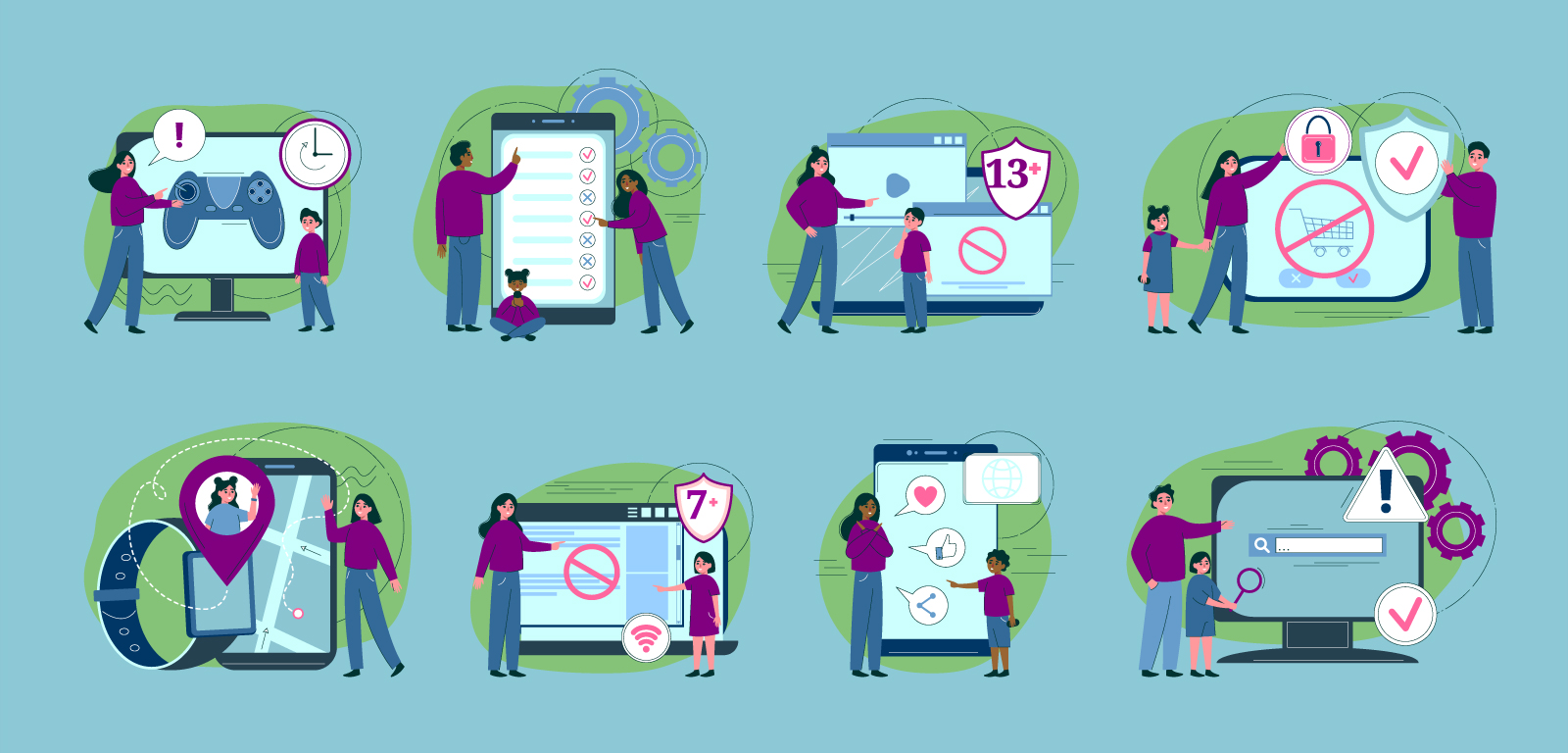Should We Protect or Empower Our Kids? Yes.

Parenting is hard. Overseeing our children’s online lives is harder still. Some parents, particularly during the teen years, throw up their hands and give up even trying to control what their kids are doing on their phones, tablets, and laptops. It feels overwhelming, exhausting, and like an unwinnable fight.
Like so much of our modern life, attitudes towards parenting in the digital age have become polarized. Some take a liberal or permissive approach and simply state that they trust their kids and leave them to their own devices. According to the Mayo Clinic’s categorization, authoritarian parents are more likely to impose strict rules, utilize parental controls and, in more extreme cases, apply spyware to snoop on their offspring’s phones without their knowledge or consent.
And then there’s a category of caregivers that falls somewhere between these two poles. The authoritative parent is open and flexible in their approach, maintaining healthy boundaries and enforcing consequences when appropriate. These parents involve their kids, particularly the older ones, in setting the rules and even consulting with them on the punishments if those rules are broken.
These authoritative parents are more likely to empower their kids to make good choices online. A shift takes place, somewhere around the age of 13 or so, when helicopter parents become more like co-pilots with their teens – learning, exploring and even playing together. This kind of partnership creates an atmosphere of trust, while also maintaining the parents’ right to verify and take action when necessary.
In the US, there is a strong emphasis on parental rights. In some states, parental authority over their kids’ online access and behavior is beginning to be encoded into law. These bills reinforce a traditional position of parenting that, in many ways, denies that children have some rights, too. Or to put it another way, between birth and the age of majority, a minor has no rights to privacy, speech, or assembly. But at 18, they magically inherit all of these rights overnight.
In Europe, there is a tradition and a promotion of children’s rights. As a child grows into their early teens, they are increasingly seen as autonomous human beings, while still dependent on their parents for their basic needs. There is an assumption that a 17-year-old, though still legally a minor, has far greater freedoms than a 7-year-old. Their rights to expression and privacy grow slowly, to begin with, and then more quickly as they emerge from puberty and move into secondary education or high school.
So should we protect or empower our kids online? This should not be an either/or question but should be a both/and more answer. Yes, of course, parents of small children up through elementary and middle school should educate themselves and use parental controls on all the internet-enabled devices that their kids have access to. It would be grossly irresponsible (not to mention overly permissive) to allow a preschooler or 10-year-old unfettered access to the web.
But when your child reaches the teen years, those controls begin to either come off or you find that your teenager has figured out ways to circumvent those controls. At this moment, it is time to sit down with them and re-write the rules of the road. Ask them to show you the online safety tools that social media sites and game consoles provide for teens and young people to use to block, report, stay private, or otherwise control their online environments. Have conversations about what they are doing online, encourage them to think critically about what they read and see, and support their digital development, not from a place of fear, but to build their knowledge and understanding.
Help your kids become self-sufficient, resilient, and self-regulating so that when they leave home, either for college or elsewhere, they have the internal tools they’ll need to deal with the worst and the best the digital world has to offer. After all, empowerment is the best form of protection.

 Stephen Balkam
Stephen Balkam